Ch11: Footnotes
Freedom Illusion
Democracy
Exploitation
Profit and Tax
Citizen or Subject
Public Ownership
Personal Worth
Authority
Human Society
Omnipotent Cretins
Parable of Cows
My Disclaimer
Imaginary Friend
My Ancestry
Politics
I am of Scottish, Welsh, Irish and English descent. Sadly, the uncertain and questionable details of my ancestry, gleaned from faint recollections of fleeting conversations from my early life, extend back no more than two or three generations before disappearing into the mist of antiquity.
[Português]
 My paternal grandfather was a schoolmaster whose ancestry, according to what I can decipher from the family grapevine, hailed from the Scottish clan: Douglas of Morton. I am led to understand that my surname Morton signifies "Town on the Moor", although I have no concrete verification of this. If so, the name of my grandfather's ancestors signifies: those of the clan Douglas who live in (or are from) the Town on the Moor. My paternal grandfather lived his life in Lancashire. My sister told me that she always had the idea that he was a miner before he became a teacher. He was a long standing member and official of a tennis and bowls club and possibly a local councillor too. He died a couple of years or so after I was born so I never knew him.
My paternal grandfather was a schoolmaster whose ancestry, according to what I can decipher from the family grapevine, hailed from the Scottish clan: Douglas of Morton. I am led to understand that my surname Morton signifies "Town on the Moor", although I have no concrete verification of this. If so, the name of my grandfather's ancestors signifies: those of the clan Douglas who live in (or are from) the Town on the Moor. My paternal grandfather lived his life in Lancashire. My sister told me that she always had the idea that he was a miner before he became a teacher. He was a long standing member and official of a tennis and bowls club and possibly a local councillor too. He died a couple of years or so after I was born so I never knew him.
My paternal grandmother was a member of the famous Hallé Choir. Her maiden name was Kennedy. But not the Irish one. Her ancestors were the Clan Kennedy who, as best as I can discover, originated from Ayrshire. Perhaps they were an off-shoot of the Irish Kennedys who, in the mists of antiquity, migrated to Ayrshire from Ireland. I don't know.
There is a story (or perhaps I should call it a legend or annal) which says that my grandmother's Kennedys were part of a people who were driven from their settled lands by the local Earl or Viscount, who wanted the land for hunting. Wedged in a narrow strip between the Earl's estate and the sea, they became a potential hot-bed of insurrection. To appease the Earl, the King granted these people parcels of land in Northern Ireland, which he made available through a scaled dispossession of the indigenous Irish inhabitants of the region. Hence the Northern Ireland problem, which some say will never be resolved until this ancient wrong is righted by returning to these people their original lands in empty Ayrshire.
I have no idea as to the validity of this legend. It is certainly very different from any official version of history. Notwithstanding, the official version of history is always whatever those in power want their subjects to believe, irrespective of the reality. So is the official version of history any more trustworthy than legends?
Unlike the majority of those displaced people, my paternal grandmother's immediate family did not migrate to Northern Ireland. Instead, they moved southwards and settled in Lancashire. My paternal grandmother came to see me, at the home of my maternal grandparents, shortly after I was born. She died on the bus on the way home. I never knew her first name either.
My father, Tom, was their youngest son. He was half a generation younger than his three older brothers and his older sister. He rose through the ranks to Major (acting Lieutenant Colonel) in the Second World War, after which he became a Town and Country Planning Officer. He then ran a business as a Planning and Civil Engineering Consultant and Expert Witness until his retirement. He died in 2003.
I had a lot of formative contact with my maternal grandparents, during which they would relate to me stories about their past. Consequently, I am able to probe a little further back on my mother's side.
 I have a faint memory of my maternal grandmother telling me that her ancestors came from a small town called Malahide on the East coast of Ireland. They had migrated to England where she was born. Her maiden name was Ethel Downs. My maternal grandmother's father was a butcher, as was his father before him. My mother passed on to my sister what her mother told her about riding a horse drawn vehicle with her father delivering meat to the "big houses". I remember my maternal grandmother as an immensely kind and caring lady with eyes of electric blue. She died when I was 15.
I have a faint memory of my maternal grandmother telling me that her ancestors came from a small town called Malahide on the East coast of Ireland. They had migrated to England where she was born. Her maiden name was Ethel Downs. My maternal grandmother's father was a butcher, as was his father before him. My mother passed on to my sister what her mother told her about riding a horse drawn vehicle with her father delivering meat to the "big houses". I remember my maternal grandmother as an immensely kind and caring lady with eyes of electric blue. She died when I was 15.
The ancestors of my maternal grandfather's father came from Pembrokeshire in Wales. My maternal grandfather's surname was Bown. This, I am led to believe, is a derivative of the name "ap Owen", where "ap" in Welsh would be analogous to "O'Owen" in Irish names and "MacOwen" in Scottish names. It simply means "of". Gradual changes in pronunciation apparently took it to "ab Owen" and then to "Bowen" and finally to "Bown" (pronounced with a Welsh accent).
My maternal grandfather frequently waxed long about his mother. Her name was Mary. She had obviously been the pillar of strength to which he had looked up. She, he said, was an extremely hard worker as well as having quite an intellect. Her maiden name was Hardy. The story my grandfather told me was that one of her forebears was an English aristocrat, with a strong social conscience, who disposed of all his estate and went to work as an ordinary labourer. Could this be from where my grandfather got his strong sense of social justice?
It seems that my maternal grandfather was given his mother's maiden name as a third forename, which made him Weston Samuel Hardy Bown. When I was little, I created from his name my pretend super-hero Wild West gun-slinger character called Wes Hardy. It is my maternal grandfather who instilled within my young mind the life-long burden always to think for myself and question the status quo.
My mother, Eunice, was the eldest of their three children. Encouraged by her father, she did very well at school. Unfortunately her father was unable to amass sufficient money, from his salary as a clerk in the Post Office Telephones accounts department in Manchester, for both her and her younger brother to attend tertiary education. He opted to send her brother on to tertiary education, an act for which my mother bore a life-long grudge. She never managed to gain her much desired tertiary education. During her early working life my mother was an inspector for the Insurance Department of the Ministry of Health in Bradford. I believe she was working at The Custom House, Salford Docks when she married. Women had to leave the civil service when they married. My parents married early in the Second World War. My mother died in 2010.
I have no documentation relating to my parents or any who came before them. I have one or two photos of my mother on my computer, taken shortly before she died, but nothing of my father. The accuracy of the scant detail herein is dubious and essentially irrelevant, except in so far as to affirm that I appear to have emerged mainly from the Picto-Celtic mists of the British Isles.